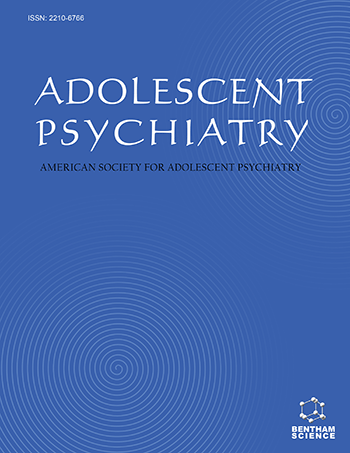Abstract
While policy makers demand that mental health care professionals implement empirically supported treatments (ESTs) for youth psychiatric disorders, research indicates that mental health care professionals do not possess the required competence for the implementation of these ESTs, due to less than optimal EST training. This paper discusses the need for: 1) the clear articulation of therapist competencies required for the effective treatment of youth psychiatric disorders, 2) the development of effective training aimed at instilling these competencies in mental health care professionals, and 3) accurate, reliable, and cost efficient assessment of therapist competencies. Current initiatives and future directions related to the definition, training and assessment of therapist competencies for the treatment of clinical disorders in youth are discussed in this paper.
Keywords: Competencies, training, dissemination, implementation, children and adolescents, mental health care, youth psychiatric disorders, ESTs, therapist competencies, cost efficient assessment
Adolescent Psychiatry
Title: Enhancing Evidence Based Practice Implementation: Defining, Training and Evaluating Therapist Competence at Treating Youth Psychiatric Disorders
Volume: 1 Issue: 3
Author(s): Elizabeth S. Sburlati, Carolyn A. Schniering and Heidi J. Lyneham
Affiliation:
Keywords: Competencies, training, dissemination, implementation, children and adolescents, mental health care, youth psychiatric disorders, ESTs, therapist competencies, cost efficient assessment
Abstract: While policy makers demand that mental health care professionals implement empirically supported treatments (ESTs) for youth psychiatric disorders, research indicates that mental health care professionals do not possess the required competence for the implementation of these ESTs, due to less than optimal EST training. This paper discusses the need for: 1) the clear articulation of therapist competencies required for the effective treatment of youth psychiatric disorders, 2) the development of effective training aimed at instilling these competencies in mental health care professionals, and 3) accurate, reliable, and cost efficient assessment of therapist competencies. Current initiatives and future directions related to the definition, training and assessment of therapist competencies for the treatment of clinical disorders in youth are discussed in this paper.
Export Options
About this article
Cite this article as:
S. Sburlati Elizabeth, A. Schniering Carolyn and J. Lyneham Heidi, Enhancing Evidence Based Practice Implementation: Defining, Training and Evaluating Therapist Competence at Treating Youth Psychiatric Disorders, Adolescent Psychiatry 2011; 1 (3) . https://dx.doi.org/10.2174/2210676611101030210
| DOI https://dx.doi.org/10.2174/2210676611101030210 |
Print ISSN 2210-6766 |
| Publisher Name Bentham Science Publisher |
Online ISSN 2210-6774 |
 13
13
- Author Guidelines
- Graphical Abstracts
- Fabricating and Stating False Information
- Research Misconduct
- Post Publication Discussions and Corrections
- Publishing Ethics and Rectitude
- Increase Visibility of Your Article
- Archiving Policies
- Peer Review Workflow
- Order Your Article Before Print
- Promote Your Article
- Manuscript Transfer Facility
- Editorial Policies
- Allegations from Whistleblowers
Related Articles
-
Video Games and Sleep: An Overlooked Challenge
Adolescent Psychiatry Borderline Personality Disorder in Adolescents
Adolescent Psychiatry Management of a Mental Health Crisis in an International High School Exchange Student: A Case Study
Adolescent Psychiatry On Utilizing an Attachment-based Model for Assessment in Adolescence
Adolescent Psychiatry Editorial [Hot Topic: Eating Disorders in Adolescents (Guest Editors: Julie Lesser and Kathleen Kara Fitzpatrick)]
Adolescent Psychiatry From 9/11 To 2011: A Brief Overview from a Child and Adolescent Psychiatry Perspective
Adolescent Psychiatry Policy and Adolescent Tobacco Use Prevention
Adolescent Psychiatry Clinical, Psychosocial and Family Characteristics of Suicide Attempts Among Greek Adolescents
Adolescent Psychiatry Child and Adolescent Mental Health in Pakistan
Adolescent Psychiatry Editorial: Adolescent Psychiatry — Past, Present, and Future
Adolescent Psychiatry The Holocaust, War Trauma and Reconciliation: Commentary on the Special Section
Adolescent Psychiatry “When Can I See You Again?”: The Immigration Experience, Insecure Attachment and Psychotherapy
Adolescent Psychiatry New Pathways of Intervention for Adolescents at Clinical High Risk of Psychosis: Improving Meta-representation Skills and Strengthening Identity with Video-Confrontation Techniques
Adolescent Psychiatry Adam and Eve - The Story of Two Adolescents
Adolescent Psychiatry Evaluation of a Dramatic Writing Workshop in Youth With or Without Psychiatric Disorders
Adolescent Psychiatry Editorial: From Research to Clinical Practice in Adolescent Psychiatry
Adolescent Psychiatry Adolescent Suicide and Suicide Prevention Programs: A Comparison Between Lithuania and Flanders
Adolescent Psychiatry Book Reviews: Thinking About Suicide: Contemplating and Comprehending the Urge to Die
Adolescent Psychiatry Freud Meets Bill W: A Model for the Dynamics of Alcoholics Anonymous
Adolescent Psychiatry Editorial: Looking Beyond DSM 5, Effective Treatments for Traumatic Stress, and Coming to Terms with World War II in the Second and Third Generations
Adolescent Psychiatry

























